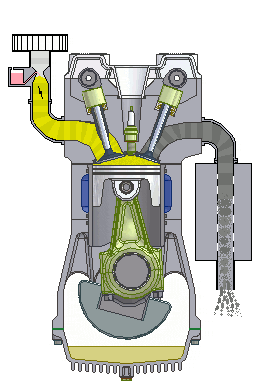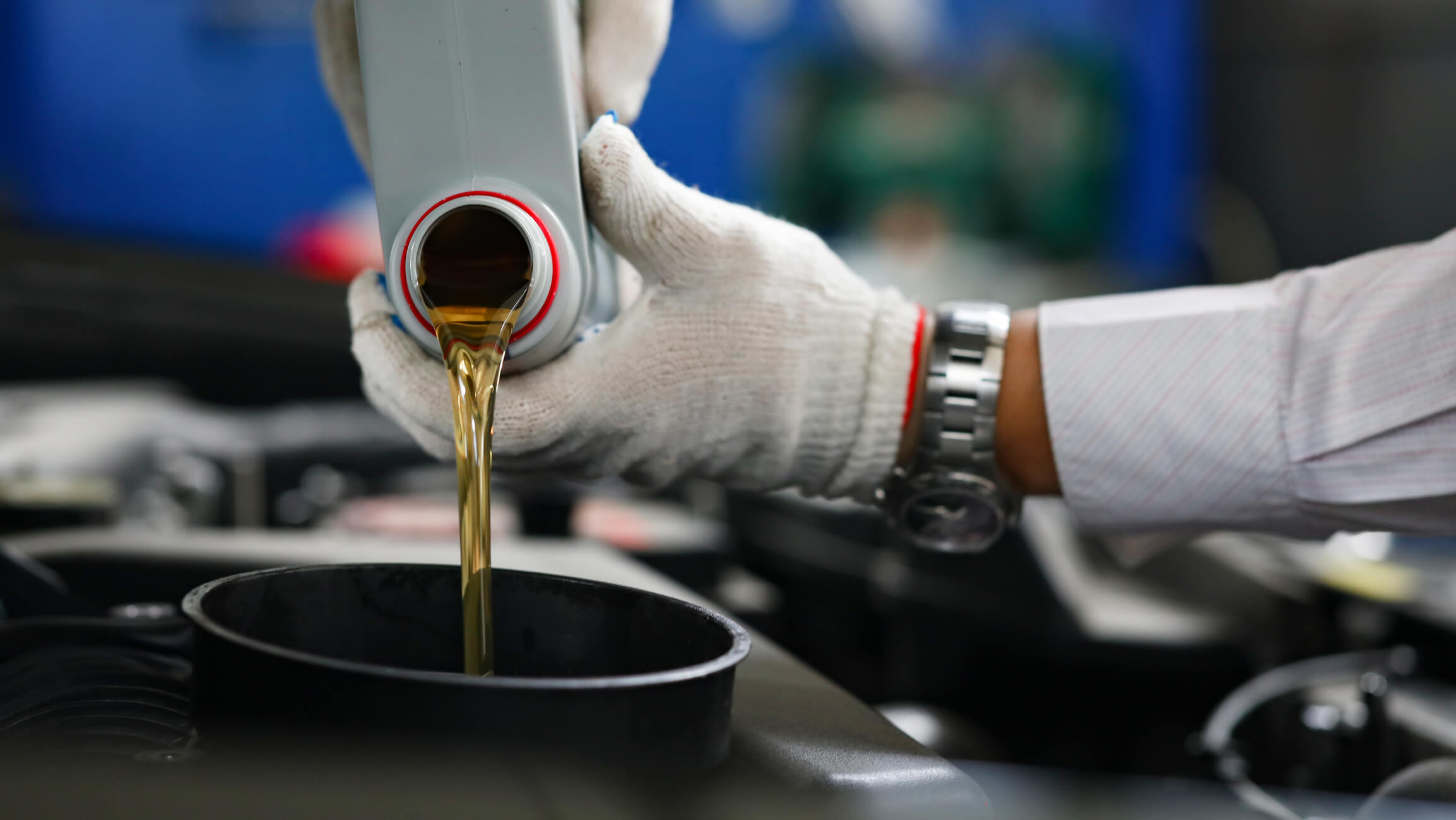As car owners, we all do our best to maintain our cars, be it by taking them for regular servicing or by using quality parts and products. Besides your engine oil and other usual consumables you put in your car, there are also additives marketed as being able to improve the performance and reliability of your car. In fact, many workshops and auto parts stores carry automotive additives such as fuel additives and engine oil treatments, but do they really work? Let’s find out.
What are Automotive Additives?
Additives are substances added to fuels, engine oils, transmission fluids, and coolants to improve their performance. Since additives play an important role in modern car fluids, most fluids in your car already have additives added to them by the manufacturer.
Additives can have different functions depending on the type of fluid they are added into. Some of their functions include improving the corrosion resistance, cleaning effect, and lubricative properties of engine oils, and even preventing fuels from depositing carbon and sludge in the engine. Examples of automotive additives that you can add to your car yourself include fuel octane boosters, engine oil treatments, and coolant additives.

Additives in Engine Oils
An example of how we use additives in our cars is when we decide on engine oils. Engine oils are divided into three types – regular mineral oil, semi-synthetic, and fully synthetic oil. Regular engine oil is essentially refined, crude oil without additives. Semi-synthetic oil is refined oil with artificial additives, while fully-synthetic oil is fully man-made and designed with additives from the ground up.
The additives in a semi-synthetic and fully synthetic oil help the oil to better lubricate and protect your engine against friction and corrosion. These additives also help the engine oil last longer which is why synthetic oils can last for up to 10,000 kilometers compared to 5,000 kilometers for mineral oils. To provide extra protection to your engine, you can opt to add an engine oil treatment when you change your oil.
Fuel Injector Cleaner
A fuel injector cleaner, also called a fuel decarbonizer by some manufacturers, is the most popular type of car additive. It’s designed to dissolve contaminants and carbon build-up around the fuel injector to keep the fuel flowing smoothly into the engine. Fuel injector cleaners are available from various major brands including Liqui Moly and X-1R, and usually need to be poured into the fuel tank every 5,000 kilometers or so. Here are some advantages of using a fuel injector cleaner in your car.
- Smoother combustion in the engine.
- Improved fuel consumption.
- Reduced exhaust emissions.
- Extends the lifespan of the fuel injectors and throttle body.
While fuel injector cleaners do work, they may not be as effective in new cars as their fuel injection system would still be in good condition. Therefore, it’s best to use this fuel additive after running your car for several thousand kilometers.
Read More: Things to Check When You Service Your Car
Fuel Octane Booster
Similar to a fuel injector cleaner, an octane booster is a fuel additive that you pour into the fuel tank. It functions to increase the octane rating of your fuel to eliminate engine knocking if you drive a car that has a high compression ratio. Here’s a brief explanation of octane rating and compression ratio.
- Octane rating: Refers to the measure of a fuel’s stability. Petrol and diesel fuels contain a mix of hydrocarbons including iso-octane, heptane, and other compounds. The higher the amount of iso-octane, the more resistant the fuel is to spontaneous combustion. Therefore, petrol with a higher octane rating or RON (research octane number) is more resistant to spontaneous combustion or knocking. This can result in increased fuel efficiency and improved engine lifespan.
- Compression ratio: Refers to the ratio between the maximum and minimum engine cylinder volume when the piston is at the bottom and top of its stroke respectively. Based on the engine stroke animation below, imagine that the engine cylinder has a volume of 10 cc (cubic centimeters) when the piston is at the bottom, and 1 cc when the piston is at the top. That gives us a compression ratio of 10:1. Engines with a high compression ratio are able to compress more air in the cylinder which produces a stronger combustion and more power. However, a high compression engine also requires high-octane fuel since low-octane fuel is more prone to spontaneous combustion.

Animation of an engine stroke [Image source: Giphy]
Should You Use Fuel Octane Boosters?
Luxury and high-performance cars usually have engines with a high compression ratio, and therefore, need fuel with a higher octane rating to prevent spontaneous, hence incomplete combustion which leads to pinging or knocking in the engine. If your car has high-performance parts, an octane booster can also increase the horsepower of your car without the risk of your engine exploding. Although this fuel additive can be useful for some cars, most of us would not benefit from it since most cars in Malaysia are able to run perfectly fine on RON 95 petrol. However, if you drive a luxury or high-performance car, you can most likely benefit from using an octane booster
Engine Oil Treatment
Most engine oils already have additives in them to help provide maximum protection to your engine. However, the oil can degrade over time and lose its additives preventing the oil from performing its function optimally. Engine oil treatments solve this problem by ensuring the additives in the engine oil last longer, thus improving the oil’s performance. Here are some additives included in engine oil treatments and what they do.
- Detergents: Help to neutralize oils, deposits, impurities, and acids, turning them soluble so they don’t turn into sludge in the engine.
- Viscosity Index Improvers: Help maintain the engine oil viscosity through varying engine temperatures so the oil can flow optimally and protect the inner surfaces of the engine.
- Anti-wear agents: Coat the surfaces of the engine, protecting it from wear and tear. As they repel water and neutralize acids, they also slow down corrosion.
- Lubricating agents: Enhances the lubricative properties of the engine oil, slowing down engine wear and tear. Lubricants are one of the most important components of engine oil treatment products.
The additives in an engine oil treatment can reduce engine wear and tear, improve fuel economy, and prolong engine life. However, similar to a fuel injector cleaner, you’re less likely to experience these benefits in a brand new car as its engine would still be in top condition.
Read More: 5 Reasons Your Car Breaks Down & How to Get Help

Engine Coolant Additive
We all know that an engine coolant is essential to keep the engine running at optimal temperatures and prevent overheating. However, regular coolant may not always be able to cool the engine down enough, especially if the car is frequently driven hard, such as on the race track. A coolant additive uses chemicals called surfactants to keep an engine cooler.
The surfactants reduce the surface tension of the water and coolant in the radiator, preventing the formation of bubbles. This allows the solution to remain in liquid form even under high heat which improves the coolant’s ability to absorb and transfer heat away from the engine. While engine coolant additives do work, most cars can function just fine without them. Most of the time, you can keep your engine running at optimal temperatures just by ensuring that you have sufficient coolant in your reservoir.
Transmission Fluid Treatment
The transmission fluid functions to lubricate the transmission system and allow for smooth gear shifting. It also already contains detergents, lubricants, and protectants that keep the transmission in good working condition. A transmission fluid treatment contains additional chemicals that can reduce the operating temperature in the transmission, promote smooth shifting, and reduce transmission seal deterioration. However, not everyone can benefit from a transmission fluid treatment.
Most vehicles are simply used for daily commuting and the occasional road trips, which don’t put a heavy strain on the transmission, and therefore, don’t require transmission fluid treatments. That being said, these automotive additives can benefit some vehicles, mainly older vehicles with high mileage, and vehicles that are frequently used to tow or carry heavy loads.
Many modern lubricants and automotive fluids already contain synthetic additives that do a good enough job of protecting the inner workings of your car. That being said, some vehicles, especially older ones, can definitely benefit from automotive additives. Whether you’re considering treating your car with a fuel additive or engine oil treatment, do consult your mechanic and get their advice.
Read More: Mistakes to Avoid When Buying a New Car
Choose CARSOME Certified for Peace of Mind
Check out CARSOME if you want a quality car. Why? All CARSOME Certified cars go through a 175-point inspection to rule out major accidents and flood damage. On top of that, we professionally refurbish our cars to give them safety beyond standards, complete comfort, and refurbished aesthetics.
With over 20 car brands on offer, every CARSOME Certified car also includes
- A five-day money-back guarantee in case you change your mind.
- A one-year warranty to ensure further peace of mind.
Visit CARSOME today to find the perfect car for you!
